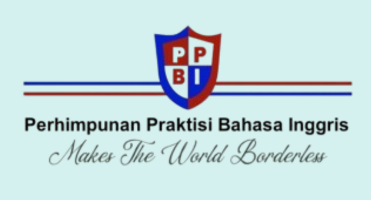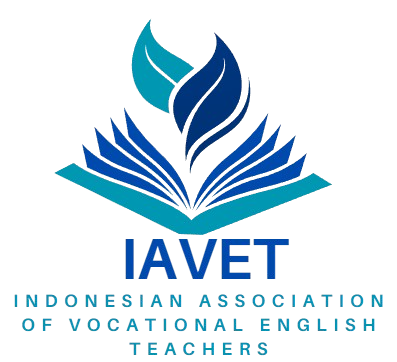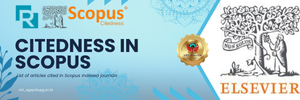Navigating Teaching Practicum in the Real Classroom: Insights from ESL Teaching Practicum Experiences
DOI:
https://doi.org/10.31963/rial.v2i2.4811Keywords:
Pre-service English Teachers, Teaching Practicum, AJARMIAbstract
Teaching practicum is one of the compulsory courses that pre-service ESL teachers have to accomplish prior to the completion of their study. Under the lens of experiential learning theory, this study aims to find out pre-service English teachers’ challenges of teaching practicum and how they overcome them. Interviews were used as instruments in this multiple case study, focusing on three pre-service English teachers who participated in the AJARMI program during the 2022–2023 academic year. The findings of this study were analyzed using thematic analysis. The PSETs faced challenges related to students' behaviour, preparation of instructional materials, and mentoring. They handled them with organizing lessons, acting as an assertive teacher, devising a backup plan, and adapting to the school system. The implications of this study suggest that teacher education programs should provide more comprehensive training on classroom management, instructional material preparation, and effective mentoring strategies to better prepare pre-service teachers for the realities of the classroom.References
Abdullah, D. Y., & Basthomi, Y. (2020). Hear our voices: Pre-service English Teachers’ Challenges and Expectations during Teaching Practice. Jurnal Pendidikan Humaniora, 8(1), 19–27. http://journal.um.ac.id/index.php/jphISSN:2338-8110
Arslan, F. Y., & Ilin, G. (2018). The Effects of Teaching Practicum on EFL Pre-Service Teachers’ Concerns. Journal of Language and Linguistic Studies, 14(2), 265–282. www.jlls.org
Collantes, L. (2021). Unveiling the Problems of Student Teachers during Practice Teaching in Nueva Ecija, Region III, Philippines. Indonesian Research Journal in Education |IRJE|, 5(1), 45–62. https://doi.org/10.22437/irje.v5i1.11849
Creswell, J. W. (2012). Educational Research. Pearson.
Fajardo, J. A., & Miranda, I. R. (2015). The Paradox of the Practicum: Affinity to and Resistance towards Teaching. Íkala, Revista de Lenguaje y Cultura, 20(3), 329–341. https://doi.org/10.17533/udea.ikala.v20n3a04
Hamied, F. A. (2017). Research Method: A Guide for First-time Researchers. UPI Press.
Heriyanto. (2018). Thematic Analysis sebagai Metode Menganalisa Data untuk Penelitian Kualitatif. ANUVA, 2(3), 317–324.
Inarsih, N. S., Seli, S., & Syafitri, D. (2021). Student’s Attitude and Challenges toward Teaching Practicum Programme (PPL) in Junior High School. EDULIA: English Education, Linguistic and Art Journal, 1(2), 45–49. https://doi.org/10.31539/edulia.v1i2.2121
Koşar, G. (2021). Distance Teaching Practicum: Its Impact on Pre-Service EFL Teachers’ Preparedness for Teaching. IAFOR Journal of Education, 9(2), 111–125. https://doi.org/10.22492/ije.9.2.07
Liamputtong, P. (2009). Qualitative data analysis: conceptual and practical considerations. Health Promotion Journal of Australia, 20(2), 133–139. https://doi.org/10.1071/HE09133
Maharani, F., & Fithriani, R. (2023). Exploring Challenges EFL Pre-Service Teachers Experience in Teaching Practicum: A Transformative Learning Perspective. Scope : Journal of English Language Teaching, 7(2), 173–180. https://doi.org/10.30998/scope.v7i2.16305
Mahmoudi, F., & ÿzkan, Y. (2016). Practicum Stress and Coping Strategies of Pre-service English Language Teachers. Procedia - Social and Behavioral Sciences, 232(2016), 494–501. https://doi.org/10.1016/j.sbspro.2016.10.067
Maulidina, N., Maisa, & Diana, R. R. (2022). Linguistics and English Language Teaching Journal Pre-Service Teachers’ Voices: The Challenges in Dealing Classroom Management Problems During Teaching Practice. Linguistics and English Language Teaching Journal , 10(2).
Nemtchinova, E. (2018). Teaching Practicum in Preparing NESTs and NNESTs. In The TESOL Encyclopedia of English Language Teaching (pp. 1–7). Wiley. https://doi.org/10.1002/9781118784235.eelt0035
Pakpahan, E. M. (2023). Challenges Faced by Pre-Service Teachers During Teaching Practicum. International Journal of Educational Narratives, 1(5), 258–263. https://doi.org/10.55849/ijen.v1i5.389
Prabjandee, D. (2019). Becoming English Teachers in Thailand: Student Teacher Identity Development during Teaching Practicum. Issues in Educational Research, 29(4), 1277–1294. http://www.iier.org.au/iier29/prabjandee2.pdf
Qadri, A. M., Dollah, S., & Weda, S. (2022). The Analysis Of The Pre-Service Teachers’ Classroom Management Challenges In Their Teaching Practice. Pinisi Journal of Art, Humanity, and Social Studies, 2(5), 185–194.
Santi, S. A., Bagus, M., Alkayis, H., Dirgantara, D. F., & Rahman, H. (2023). Stress Akademik pada Mahasiswa Asistensi Mengajar. Prosiding SEMDIKJAR (Seminar Nasional Pendidikan Dan Pembelajaran), 1801–1807. https://proceeding.unpkediri.ac.id/index.php/semdikjar/article/view/3971
Shah, M. A., Ahmad, S. M., & Raza, K. K. (2020). Support and Challenges during Teaching Practicum: A Survey of B. Ed (Hons) Prospective Teachers of Public Universities of Khyber Pakhtunkhwa. SJESR, 3(3), 204–211. https://doi.org/10.36902/sjesr-vol3-iss3-2020(204-211)
Sobara, I. (2022). Eksplorasi Pengalaman Mahasiswa Prodi Pendidikan Bahasa Jerman Universitas Negeri Malang Saat Mengikuti Program Asistensi Mengajar. SEMINAR NASIONAL Pembelajaran Bahasa Dan Sastra, 6, Art. 6. https://www.researchgate.net/publication/363262832
Soleimani, N., & Razmjoo, A. (2019). Classroom Management Challenges: An Account of EFL Teachers at Private Language Institutes. Anatolian Journal of Education, 1(1), 51–69. https://doi.org/10.29333/aje.2016.114a
Suhaili, M., Tawali, Hanan, A., & Sudirman. (2023). Kapasitas (Capacity Building) Mahasiswa S1 Pendidikan Bahasa Inggris Universitas Pedidikan Mandalika Dalam Meningkatkan Kualitas Asistensi Mengajar di Era Pandemi. Jurnal Ilmiah IKIP Mataram, 8(1), 155–160. https://e-journal.undikma.ac.id/index.php/jiim/article/view/4097
Downloads
Published
Issue
Section
License
Copyright (c) 2024 Research and Innovation in Applied Linguistics [RIAL]

This work is licensed under a Creative Commons Attribution-ShareAlike 4.0 International License.
Authors who publish with this journal agree to the following terms:
Authors who submit article to this journal, agree to grant the copyright to Research and Innovation in Applied Linguistics (RIAL) under a Creative Commons Attribution License: Creative Commons Attribution-ShareAlike 4.0 International License.
![]()
For collaborative works, authors should ensure that they have secured the necessary permissions from co-authors to submit the manuscript and grant the rights outlined in this policy.
Archiving and Access:
RIAL upholds an open access policy, ensuring that articles are freely accessible to a global audience upon publication. Authors' work will be archived electronically, facilitating its long-term availability and visibility.









.png)


